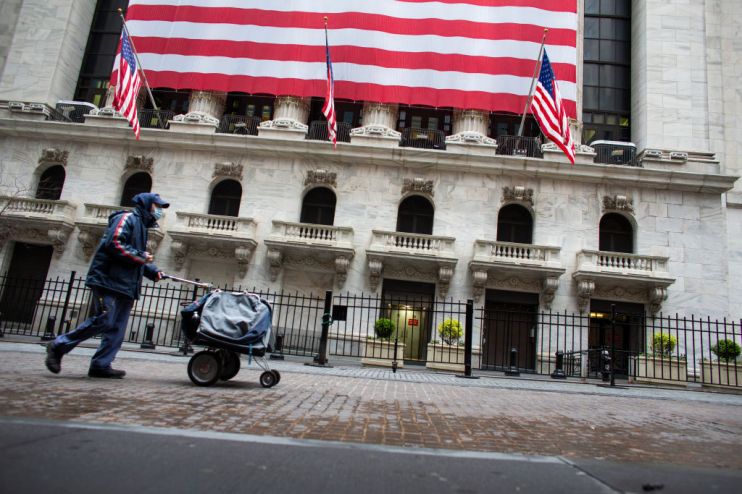US stocks climb despite jump in jobless claims

US stocks have opened higher despite another surge in new claims for unemployment insurance as investors choose to focus on a new stimulus package from Congress.
Wall Street’s Dow Jones index climbed 0.6 per cent in early trading while the S&P 500 rose 0.7 per cent. The Nasdaq was up 0.8 per cent.
European stocks were also broadly higher after a choppy morning. The pan-European Stoxx 600 was up 0.7 per cent. The UK’s FTSE 100 was 0.5 per cent higher and the German Dax was also up 0.5 per cent.
The investor optimism came despite new US jobless claims last week hitting 4.4m. This took the total new claims over the last five weeks to 26m and underlined how coronavirus lockdown measures are causing unemployment to skyrocket.
However, in the continuation of a trend seen over the last few weeks, investors barely registered the dire data.
Yet more stimulus helps US stocks
Instead, their sights were on the latest huge bailout package from Congress. The House of Representatives is due to vote on a $480bn (£390bn) bill that would replenish a depleted fund for small businesses struggling amid the outbreak.
US and European stocks have rallied in recent weeks as investors have been assured that central banks and governments have their backs through giant stimulus programmes. The S&P 500 is now only five per cent off where it was a year ago.
Analysts at BCA Research said in a note that stocks had seen a “liquidity-driven rally,” brought about by investors looking to re-enter the market at cheaper prices. Tech stocks have in particular been flying high in recent weeks.
However, BCA Research said that “the violence of the rebound in US stocks exposes investors to the risk of a short-term correction” if “the economy takes more time to recover”.
Another factor helping stocks today was a rebound in oil prices, which crashed on Monday. WTI crude oil, the US benchmark, was 24 per cent higher this afternoon at $17 per barrel. However, WTI traded at $60 per barrel at the start of the year.
On Monday, the May contract for WTI oil fell into negative territory for the first time ever, meaning sellers were paying buyers to take oil off their hands.
Craig Erlam, market analyst at currency firm Oanda, said: “Oil prices are enjoying another little bounce on Thursday but don’t be fooled, at these levels, the percentage change can be very misleading.”